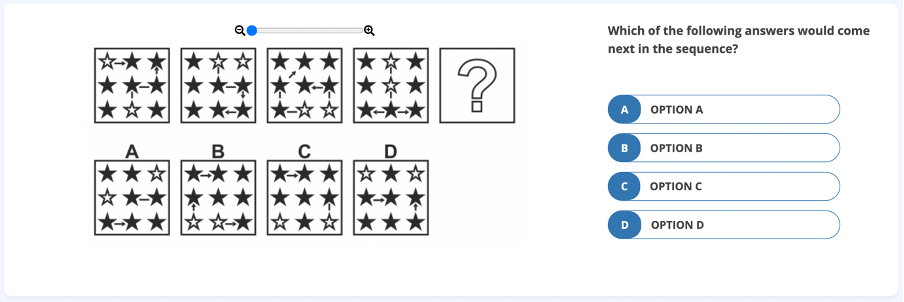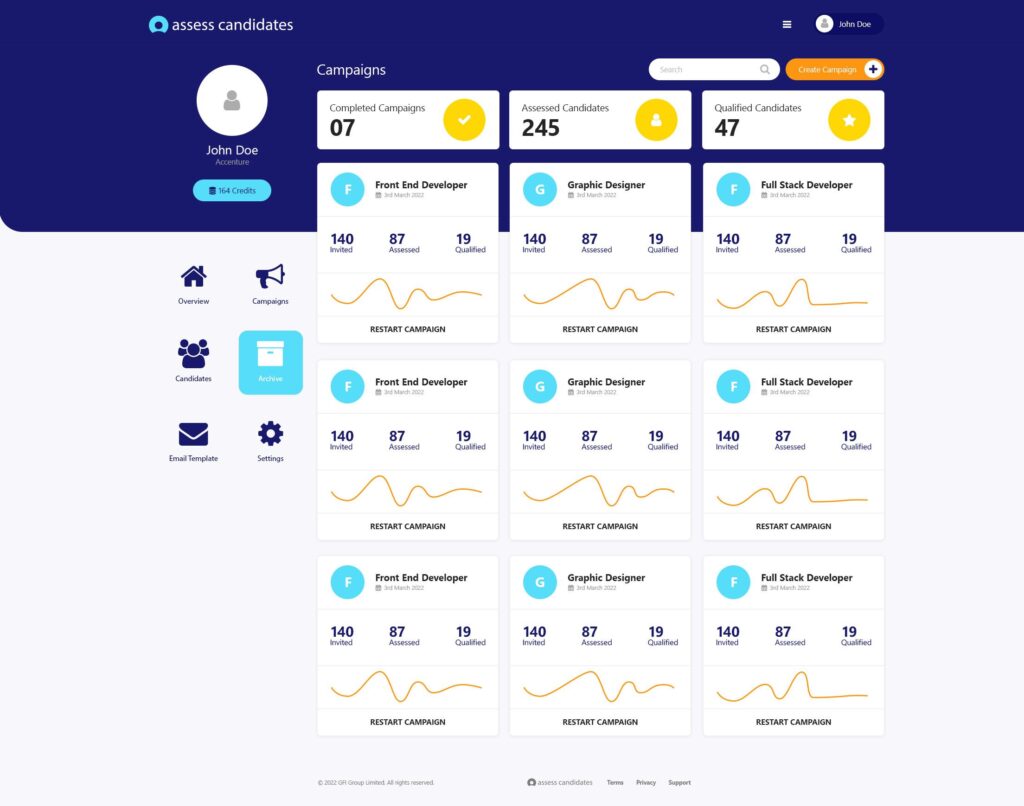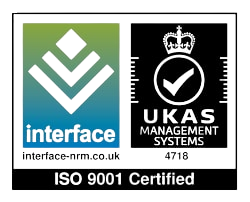Abstract Reasoning Pre-Employment Recruitment Tests 2024 | Full Guide
This article provides a comprehensive and easily understandable overview of the pre-employment abstract reasoning test, a widely used tool in recruiter’s candidate selection processes.
Are you involved in recruitment as a recruiter, talent acquisition specialist, HR expert, or hiring manager? Chances are, you’re already utilizing a diverse range of candidate assessment tools to swiftly identify and hire the most suitable candidates. These tools can include aptitude tests, video interviews, assessment centers, and even assessment games.
If you are looking for answers to questions such as:
- What is a pre-employment abstract reasoning test?
- How can abstract reasoning tests be used in my company’s hiring process?
- How can abstract reasoning tests help me find the best candidates? Why use abstract reasoning pre-employment tests in hiring?
- Which roles are best suited for using abstract reasoning tests?
- What are the benefits of using abstract reasoning tests?
Then this text is for you. Continue reading to find the answers and much more.
Contents:
- What is a pre-employment abstract reasoning assessment?
- What do abstract reasoning tests measure and why should they be used in the hiring process?
- How do abstract reasoning tests differ from other assessments, such as logical and diagrammatic ones?
- Types of abstract reasoning tests.
- Examples of abstract reasoning recruitment test questions
- How do recruiters interpret abstract reasoning test results? What are percentile score marks?
- Benefits of using abstract reasoning tests for hiring.
- What are some of the examples of difficulties with using abstract reasoning tests for recruitment?
- What industries make use of an abstract reasoning test?
- Which roles and positions are best suited for recruitment using abstract reasoning tests?
- Abstract reasoning assessments FAQs
- Why use Assess Candidates Pre-employment assessments to hire?
1. What is a pre-employment abstract reasoning assessment?
A pre-employment abstract reasoning test is a cognitive ability test that assesses a person’s ability to solve problems and comprehend complicated ideas, especially when they have little to no prior knowledge or experience.

Abstract reasoning, also known as inductive or non-verbal reasoning, involves identifying patterns, relationships, and rules within visual or abstract stimuli.
The pre-employment abstract reasoning tests are a common type of aptitude or psychometric test used in job recruitment. They are mainly used to measure candidates’ ability to solve problems and comprehend complicated ideas, especially in situations when they have little to no prior knowledge or experience.
As a recruitment manager or a talent acquisition expert, many jobs you advertise may require strong critical thinking, problem-solving, and analytical skills. These assessments are commonly used in fields such as
- Finance
- Engineering
- Information technology
- Management consulting
- Research
What abilities are abstract reasoning recruitment tests designed to assess in candidates?
- Problem-solving skills: Abstract reasoning tests assess complex problem-solving abilities, including pattern recognition, critical thinking, and decision-making.
- Cognitive abilities: These tests measure abstract thinking, conceptual reasoning, and mental flexibility, indicating adaptability and quick learning.
- Aptitude for complex tasks: Abstract reasoning tests evaluate handling intricate information, making connections, and drawing accurate conclusions, crucial for data analysis and problem-solving roles.
Abstract reasoning tests are not designed to assess specific knowledge or skills. Instead, they focus on evaluating an individual’s ability to identify and apply rules or principles based solely on visual stimuli. This prerequisite of abstract reasoning tests highlights the importance of visual-based reasoning in the assessment process.
For recruiters and hiring managers, abstract reasoning tests form a fundamental part of the selection process supporting finding those applicants that have the aptitude to fill the requirements of the role, whether that be in finance, engineering, or scientific research.
Having covered the prerequisites and main competence of abstract reasoning tests, let’s now delve into understanding what these tests measure.
Optimize pre-employment assessments with our speedy automated platform. Simplify and save time. View Plans
2. What do abstract reasoning tests measure and why should they be used in the hiring process?
Abstract reasoning tests determine a person’s capacity for information analysis, pattern recognition, and making connections without the aid of prior knowledge or specialised abilities.
5 key skills measured by abstract reasoning tests
- Pattern Recognition: Assessing the ability to identify and analyze patterns in visual stimuli.
- Logical Thinking: Evaluating logical reasoning skills and the ability to make accurate predictions or conclusions.
- Problem-Solving Abilities: Gauging the aptitude for solving problems based on visual information.
- Abstract Thinking: Measuring the capacity for conceptualizing and manipulating abstract ideas.
- Cognitive Flexibility: Assessing the ability to adapt thinking strategies and consider multiple possibilities.
Abstract reasoning tests provide insights into an individual’s cognitive abilities, including analytical skills, creativity, and critical thinking in abstract and complex situations.

4 reasons why abstract reasoning is a valuable skill to look for when hiring
- Indicate potential for success in complex roles: e.g., problem-solving, critical thinking, and strategic planning.
- Promote innovation and creativity by generating novel solutions to problems.
- Make decisions by analysing complex data, draw logical conclusions, and make sound judgments.
- Create a versatile workforce that applies across industries and adapts to changing business needs.
3. How do abstract reasoning tests differ from other assessments, such as logical and diagrammatic tests?
Abstract reasoning tests are a type of cognitive assessment also referred to as inductive reasoning tests because they assess the ability to identify patterns and draw conclusions based on limited information.
Let’s discover the different aspects of abstract, logical and diagrammatic tests.
| Assessment Type | What it measures | What it involves | What is assessed |
|---|---|---|---|
| Abstract Reasoning Test | Abstract pre-employment tests measure a person’s ability to think critically, problem-solving, and make choices based on new or incomplete information. | It typically involves a series of diagrams, shapes, or patterns, and requires the test-taker to identify the underlying logic or pattern that governs the sequence. | The test-taker must then use this understanding to predict the next item in the sequence or complete a missing item. |
| Logical Reasoning Test | Logical pre-employment tests assess an individual’s ability to apply formal or informal logic to solve problems. | These tests often involve questions requiring the test-taker to analyse statements, evaluate arguments, and draw conclusions based on a set of rules or principles. | Logical tests are often used to assess a person’s ability to think logically, critically, and analytically. |
| Diagrammatic Reasoning Test | Diagrammatic pre-employment tests, sometimes referred to as spatial reasoning tests, assess an individual’s ability to understand and manipulate visual information. | These tests often involve diagrams or images that require the test-taker to identify patterns, relationships, and spatial arrangements among objects or shapes. | Diagrammatic tests are often used to assess a person’s ability to understand and work with visual information. |
Although skills in Abstract, Logical, and Diagrammatic Reasoning may overlap, each type has a distinct goal and focus.
Recognizing the distinctions between logical, diagrammatic, and abstract reasoning tests empowers recruiters to assess candidates more effectively, make informed hiring decisions, and optimize their talent acquisition processes.
Let’s now find out about some of the most common types of abstract reasoning tests:
4. Types of abstract reasoning test
Abstract reasoning tests are intended to assess a person’s capacity for understanding and analysing complicated relationships, patterns, and concepts. There are several types of abstract reasoning tests, including:
- Matrix reasoning test: In this test, candidates must determine the pattern or rule that controls the arrangement of the shapes in a matrix or grid. Then, they must choose the following shape in the series from a selection of choices.
- Number series: A series of numbers that adhere to a pattern or rule is presented to applicants in the Number Series Test. The next number in the series must be chosen from a list of alternatives after they have determined the pattern.
- Spatial reasoning test: Requires candidates to mentally rotate or manipulate a 2D or 3D image in order to recognise a concealed shape or object.
- Logical deduction: Candidates are given a set of premises and a conclusion in this test. In order to establish whether the conclusion logically follows from the premises, they must apply logic and deduction.
- Inductive reasoning test: In this test, candidates must determine the underlying principle or pattern that links a group of cases or observations. They must then use a fresh example or observation to apply this rule.
- Diagrammatic reasoning test: In this test, candidates must determine the connections between a set of diagrams or images that are shown to them. They must then apply this connection to an issue or query.
It is worth noting that while there are various types of abstract reasoning tests, the terminology used for these tests may vary depending on the publisher or assessment provider.
Gaining a comprehension of these tests will assist the recruiters in determining the most suitable test for your organization and navigating the occasionally unfamiliar realm of psychometrics terminology.
Now, let’s explore some examples of abstract reasoning test questions.
Effortlessly evaluate candidates with our streamlined pre-employment assessments. Hire For Free
5. Examples of abstract reasoning recruitment test question
To help you visualise the questions, here are some examples of pre-employment abstract reasoning test questions with worked solutions:
Example 1

- Task: The candidate must identify which of the following answer best matches the sequence.
- Solution:
- There are always two circles, two squares and an arrow in each diagram, leaving Answers C and D.
- There are always more dark blue figures, leaving Answers A and C.
- Therefore, the correct answer is option C.
Example 2

- Task: The candidate must identify which of the following answer would come next in the sequence.
- Solution:
- Every second shape holds an arrow pointing vertically upwards.
- The diagonal arrow pointing bottom-left in the first graph moves 180 degrees per shape, and the horizontal arrow pointing right moves 45 degrees clockwise each graph.
- Therefore, D must be the correct answer.
Example 3

- Task: The candidate must identify which of the following answer would come next in the sequence.
- Solution:
- There are always two stars shaded white in each graph
- The arrows show the direction to which these stars will move in the next sequence.
- Therefore, the correct answer is C.
Average time per question: 60 seconds
The abstract test typically contains 10- 40 questions
Learn how to interpret abstract reasoning test results and understand the meaning of percentile score marks with our next section.
6. How do recruiters interpret abstract reasoning test results? What are percentile score marks?
By examining the percentile score marks, recruiters analyse the results of the abstract thinking test. A candidate’s performance in relation to other test-takers is depicted by their percentile score, which is a statistical indicator.
For instance, if a candidate has a score in the 75th percentile, it signifies that they outperformed 75% of the test-takers.
Recruiters use percentile scores to compare and identify top-scoring candidates who possess the necessary cognitive abilities for the job. However, it’s important to consider other factors like work experience and soft skills during candidate evaluation.
Here are some general guidelines for interpreting percentile scores on abstract reasoning tests:
- 90th percentile and above: Exceptional performance, suitable for complex problem-solving roles such as engineering or data analysis.
- 75th to 89th percentile: Strong performance, suitable for roles requiring abstract reasoning, such as management or research.
- 50th to 74th percentile: Average performance, suitable for basic problem-solving tasks but may struggle with more complex tasks.
- Below 50th percentile: Below average performance, may struggle even with basic problem-solving tasks and not well-suited to roles that require high levels of abstract reasoning.
Remember: Pre-employment abstract reasoning tests are best used as a sifting tool. We recommend employing low cut offs around the 30th percentile to ensure a basic standard of performance is met. You can then introduce additional stages to find out more about your candidate’s suitability for the role.
Read on to learn more about the advantages of employing abstract reasoning tests for you and your company.
7. Benefits of using abstract reasoning tests for hiring
Here are 4 top reasons for incorporating abstract reasoning tests in the hiring process.
- Assessing Problem-Solving Skills: Abstract reasoning tests evaluate an individual’s ability to analyze and solve complex problems. This skill is crucial for various roles, such as management, consulting, and research.
For example, a software development company might administer an abstract reasoning test to assess candidates’ logical thinking skills, as they need to solve intricate coding challenges
- Predicting Job Performance: Abstract reasoning tests can serve as an indicator of an individual’s potential job performance. High scores in these tests often correlate with strong analytical abilities and the capacity to handle complex tasks effectively.
For instance, an investment firm may use an abstract reasoning test to identify candidates who can quickly understand market trends and make sound investment decisions.
- Reducing Bias and Increasing Fairness: Abstract reasoning tests provide a standardized and objective assessment method, reducing the influence of personal biases in the recruitment process. By focusing on logical thinking and problem-solving skills, these tests can help ensure fair evaluation of candidates from diverse backgrounds.
For example, a tech company aiming to enhance diversity and inclusion might rely on abstract reasoning tests to assess candidates solely based on their cognitive abilities.
- Efficient Screening Process: Abstract reasoning tests enable employers to efficiently screen a large pool of candidates, helping them identify the most qualified individuals for further stages of the recruitment process. These tests can quickly narrow down the candidate pool, saving time and resources
For example, when hiring entry-level analysts, a consulting company may utilize an abstract reasoning test to eliminate candidates lacking the requisite analytical skills prior to progressing to the interview phase

Despite the valuable insights that abstract reasoning tests bring, there are drawbacks. Let’s cover these in some more detail.
8. What are some of the examples of difficulties with using abstract reasoning tests for recruitment?
Here are 5 questions often asked when it comes to limitations of abstract reasoning tests in the recruitment process.
5 Limitations of Abstract Reasoning Tests
- Do abstract reasoning tests translate to real-world scenarios or reflect job tasks?
- Abstract reasoning tests may not reflect real-world tasks and may not capture crucial skills like creativity, emotional intelligence, and practical problem-solving.
Solution: Use abstract reasoning tests alongside a situational judgement test to give candidates a realistic job preview of what to expect in a given role.
- How can test anxiety affect performance on abstract reasoning tests?
- Despite having the necessary cognitive abilities, test anxiety may affect performance on abstract reasoning tests. It negatively impacts concentration and problem-solving skills, ultimately leading to a suboptimal candidate experience.
Solution: Encourage candidates to practice abstract reasoning tests beforehand to ensure test scores reflect their true performance.
- What aspects of a candidate’s profile may be overlooked by relying solely on abstract reasoning test results?
- Relying solely on abstract reasoning test results may overlook certain preferences and qualities in a candidate’s profile. While abstract reasoning tests provide valuable insights into an individual’s cognitive abilities, they may not capture other important aspects of a candidate’s profile.
Solution: Consider introducing other assessments to tap into preferences and behavioural competence. For example, a measure of personality or situational judgement test to get a well-rounded picture of a candidate.
- Can abstract reasoning tests be compromised or manipulated?
- Candidates may rely on external resources or assistance to improve their performance.
Solution: Consider introducing other assessments to tap into preferences and behavioural competence. For example, a measure of personality or situational judgement test to get a well-rounded picture of a candidate.
We will now move onto the industries that employ abstract reasoning tests.
Build an assessment process the way you want. Gain a holistic understanding of your candidate’s suitability for the role. View Plans
9. What industries make use of an abstract reasoning test?
Abstract reasoning tests are used in various industries and fields to assess an individual’s logical and analytical thinking abilities.
While specific industries may have their own unique assessment requirements, here are some examples of industries that commonly utilize abstract reasoning tests:
- Information Technology (IT): Tests assess problem-solving skills, logical thinking, and understanding of complex systems or algorithms.
- Consulting and Management: Tests evaluate critical thinking, decision-making, and problem-solving abilities.
- Finance and Banking: Tests assess numerical reasoning, logical thinking, and interpretation of data patterns.
- Engineering and Technical Fields: Tests evaluate complex problem-solving, understanding of technical drawings or diagrams, and pattern identification.
- Government and Civil Service: Tests assess logical thinking, problem-solving skills, and interpretation of abstract information.
- Research and Development: Tests evaluate creativity, logical reasoning, and problem-solving in scientific or technological domains.
- Design and Creative Fields: Tests assess creative thinking, visual problem-solving, and pattern recognition.
It’s important to note that the specific use of abstract reasoning tests may vary within each industry and even among different companies or organizations.
Now, let’s dive into the roles and positions that are particularly well-suited for recruitment with abstract reasoning tests.
10. Which roles and positions are best suited for recruitment using abstract reasoning tests?
Abstract reasoning tests commonly assess a candidate’s problem-solving and critical-thinking capacity. These tests are most appropriate for highly analytical, creative, and innovative jobs.

Here are some positions that could benefit from the use of abstract reasoning tests in the recruitment process:
| Roles and Positions | Skills Assessed |
|---|---|
| Engineers | Ability to analyse complex data and solve technical problems. |
| Analysts | Ability to understand complex algorithms, think creatively and solve technical problems. |
| Software Developers | Ability to understand complex algorithms, think creatively, and solve technical problems. |
| Architects | Ability to think creatively, analyse complex data, and develop innovative solutions. |
| Scientists | Ability to think critically, analyse data, and solve complex problems. |
Ultimately, any position that requires strong analytical and problem-solving skills could benefit from the use of abstract reasoning tests in the recruitment process.
Keep reading to discover even more answers to frequently asked questions about the Abstract reasoning pre-employment recruitment tests.
11. Abstract reasoning assessments FAQs
Here are a few FAQs that provide recruiters with a better understanding of the rationale, benefits, interpretation, and considerations associated with using abstract reasoning tests in the pre-employment recruitment process.
- Why do recruiters use abstract reasoning tests during the recruitment process?
- Abstract reasoning tests evaluate cognitive abilities, problem-solving skills, and logic, revealing candidates’ potential to analyze, decide, and adapt. They identify those with the required intellectual capabilities.
- Can a candidate’s performance on abstract reasoning tests be improved with coaching or practice?
- Coaching and practice enhance test performance, but cognitive abilities are the main focus of abstract reasoning tests. Familiarity with the format helps, but won’t drastically alter inherent capacity. Recruiters should consider the overall candidate profile, not just test scores, for hiring decisions.
- Are there any legal considerations when using abstract reasoning tests in recruitment?
- Compliance with local laws is crucial when using abstract reasoning tests or other selection tools. Recruiters must be aware of equal employment opportunity laws, including fairness, non-discrimination, and reasonable accommodation. Tests should be validated, administered consistently, and unbiased for all candidates.
- How can recruiters choose the right abstract reasoning test for their recruitment process?
- Recruiters should align the abstract reasoning test with job requirements and competencies. Expert consultation or partnering with reputable test providers helps select the most suitable test.
- How can recruiters effectively communicate the purpose of abstract reasoning tests to candidates?
- Recruiters should clearly communicate the purpose of abstract reasoning tests to candidates, explaining how they assess relevant cognitive abilities. Provide details about the test format, time limits, and other relevant information to set expectations. Much of this is often handled by the test provider.
Try our range of end-to-end hiring assessments. Invite 5 candidates on us. Hire For Free
12. Why use Assess Candidates Pre-employment assessments to hire?
At Assess Candidates we provide a range of psychometric assessments to suit all organisation’s needs.
Below is an example of our reporting tool on Assess Candidates, that you as a hiring manager or talent acquisition expert will see when reviewing candidate performance.

Here are the top four reasons to consider using Assess Candidates’ Pre-employment tests for your hiring process:
- Designed by Experts: Our psychometric assessments are developed by chartered scientists, psychologists and psychometricians, which have undergone rigorous testing and validation to select top talent in multiple organisations.
- Hiring Assessment Platform Compatibility: Assess Candidates’ easy-to-use hiring assessment platform allows employers to view candidate performance and make hiring decisions confidently with flexible criteria. Employers can easily shortlist candidates based on how well they performed in each psychometric test.
- Candidate Engagement: Assess Candidates’ engaging candidate experience ensures that the tests are user-friendly and accessible from any device. The psychometric assessments will be delivered on a fully branded portal for a seamless experience.
- Easy Accessibility: Support for those with visual disabilities including; additional time, a zoom feature, avoiding the use of certain colours and images, in line with the Web Content Accessibility Guidelines (WCAG) to allow for the use of screen readers.
